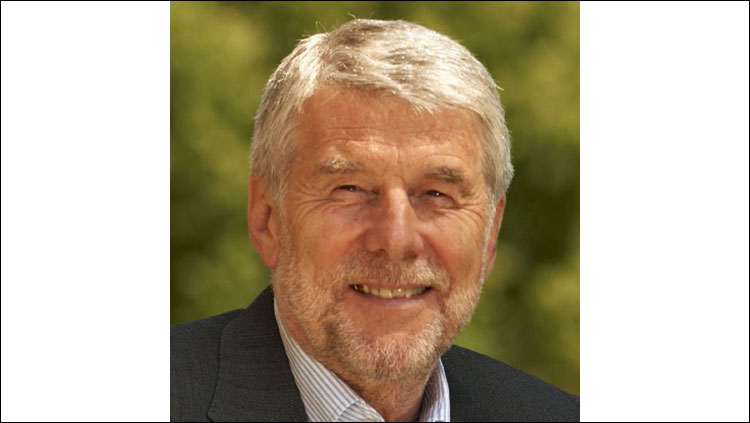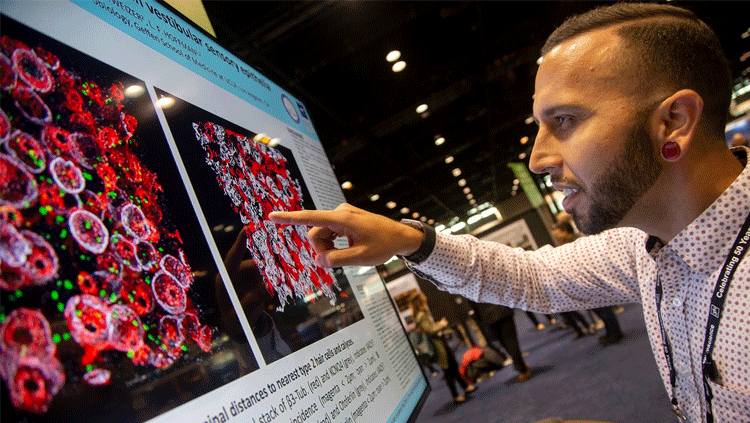Q&A: FENS President Looks to Strengthen Community
Jean-Antoine Girault MD, PhD (France) is the FENS president for 2020-2022.
Inserm research director, head of the Institut du Fer à Moulin (Inserm and Sorbonne University) in Paris until September 2020, his research focuses on the signalling mechanisms involved in the plasticity of the nervous system, in normal and pathological conditions. Former president of the French Neuroscience Society, Jean-Antoine Girault has also actively contributed to the coordination of neuroscience research and training in the Paris region.
Neuroscience Quarterly: The COVID-19 pandemic has placed significant stress on individual neuroscientists and the global neuroscience community. How do you envision FENS supporting its members through these difficult times?

Jean-Antoine Girault
Jean-Antoine Girault: For FENS, the outbreak of the pandemic coincided with a more general discussion in our leadership on how we want to conduct our activities in the future and how we can provide the best value to our membership.
The transformation of the Forum 2020 into the FENS 2020 Virtual Forum is one example of the way we, as societies, can support our members and our community: bringing close to 5,000 scientists together and allowing them to meet and discuss at a time when labs had been closed for an extended period and were progressively reopening is, to me, an example of the role FENS as a society can play for its members.
And, as the situation for the future remains uncertain, FENS will continue developing activities and initiatives to support its members and the neuroscience community.
NQ: The FENS 2020 Virtual Forum was a success. What lessons did FENS learn from the Virtual Forum and how could those lessons be applied to future FENS Forums?
JAG: The FENS 2020 Virtual Forum was successful at many different levels. We were proud to be able to offer our delegates the same high-level and cutting-edge scientific program as we would have normally done in a physical meeting, and we are very grateful to our speakers, participants, and supporters for joining us in this adventure. The virtual format allowed our community to meet and exchange despite a challenging context, which was also very important for us to achieve.
We are fortunate to have a community of scientists that are eager to learn, share, and discuss, and we were amazed by the level of engagement shown by our community, especially on Twitter. With all this time working from home, our delegates were seasoned online workers and did more than just attend the lectures: they actively participated and made the Forum!
Taking the Forum virtual was very much sailing on unchartered seas for FENS and we have naturally learned a lot from this experience. Until now, online community technologies have not been used to their full extent, including for some larger meetings and events such as our Forum. This is one aspect that we will definitely take forward: having an inclusive format allowing an online experience will increase access to the Forum for people who would not normally attend in person.
NQ: Events this summer brought renewed focus on the lack of diversity in the scientific community. Can you share some efforts FENS is pursuing to make neuroscience more welcoming to all?
JAG: The neuroscience community, and its representation, is not as diverse as one would want it to be and we, as scientific organizations, have a shared obligation to actively address this.
FENS has been addressing gender balance in activities and events through a sustained effort. At this year’s Forum, we saw for the first time a balanced representation of male and female speakers at all levels – from plenary to symposia. Further, together with other committed partners such as SfN and IBRO, we launched the ALBA Network in 2019. This initiative aims to foster equity and diversity in brain sciences and I would encourage everyone in the neuroscience community to get involved.
For the first time as well with this Forum, and this was partly brought by the virtual format, we had a great opportunity to work with our partners and open up the Forum experience. Thanks to our member societies and other partners, we implemented special society grants and ALBA-FKNE-YIBRO Diversity grants. We were able to reach a wider audience than ever before with 88 countries across the world represented at the Forum, which I feel also counts as one of the main successes of this year’s Forum. This trend is definitely something we want to take forward.
NQ: SfN and FENS have a longstanding relationship. How do you see this relationship bearing fruit during your presidency?
JAG: SfN and FENS have a longstanding relationship and shared interests in supporting our community of scientists, in particular when challenged by external events. Our values align and there is strong commitment from both organizations to work together when this is relevant. Examples of this collaboration include workshops on openness in animal research organized by EARA, and webinars on scientific training and advocacy.
Under the presidency of Barry Everitt, who is now the current SfN president, FENS and SfN formalized their way of interacting through a Memorandum of Understanding. As both organizations are constantly evolving and evaluating their activities, we believe that new initiatives can be established under this umbrella. During my presidency, I am hoping to add to our range of activities the elements of advocacy training for our national societies which will benefit all our members.























